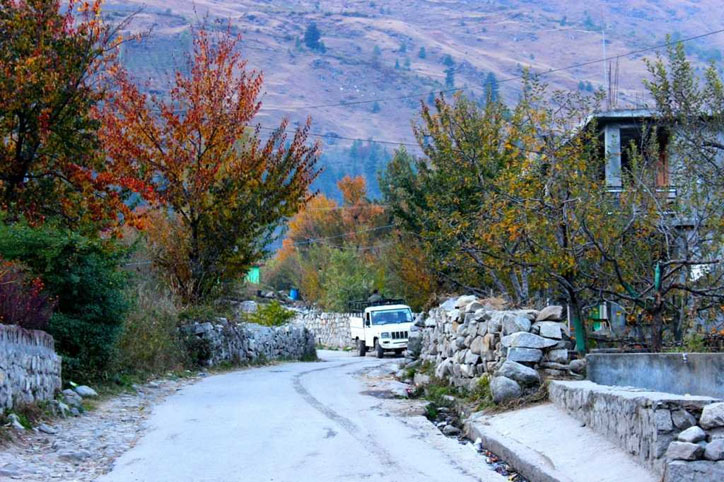 Manali:
Manali: Traditional apple-growing villagers around this tourist resort in Himachal Pradesh are wrapping themselves up in thick blankets as they prepare to observe silence for almost a month in a hoary religious tradition.
The silence comes with the belief that the gods have returned to the heavens and are in deep meditation. Noise from the earth would disturb them. And if they get angry on being disturbed, it will bring misfortune for the villagers and for their livestock.
Goshal, Shanag and eight other tiny hamlets -- with a population less than 10,000 and known for growing delicious apples -- on the outskirts of Manali in Kullu district, some 250 km from the state capital, even don't allow visitors to make the slightest noise.
The silence that every year begins on Makar Sankranti (January 14) continues till the end of the "Magh" month. This time it will end on February 10.
During this period the locals stop listening to music, watching television, performing even household chores and working in fields -- anything that makes a noise.
The temple of Gautam Rishi and Ved Vyas Rishi, as also serpent deity Kanchan Nag, located in Goshal village, four kilometres from upper Manali, are also closed to the public every year on Makar Sankranti.
Legend has it that Gautam Rishi, the chief deity, had meditated where the temple is now located.
The temple will be reopened when the deities return from their sojourn. During this period, no religious ceremony is performed in the temple.
As per tradition, the locals start their routine activities only when the deities are back to the temple.
"On the first day of Magh, the deities returned to the heaven for meditation. They will return to the earth on 'Phalguna' (February 11). During their sojourn, any activity here will disturb them. So the locals have stopped listening to music and watching television. Even the temple is closed," temple priest Jogi Ram told IANS.
Octogenarian and local Daulat Ram, who is settled in Shanag village, said the practice of observing silence have been followed for centuries. He said even the tilling of land has been stopped during this period.
But this is the period when social culture blooms.
"During this period, when all household chores that make noise is stopped, the womenfolk devote most of their time gathered in small groups and stitching clothes and knitting woollens by hand," Daulat Ram's daughter-in-law Hem Lata said.
Even mobiles and landline telephones are kept on silent mode.
Shanag and its nearby villages are currently marooned in over two feet snow.
According to legend, the temple of Gautam Rishi in Goshal is closed after spreading mud inside. It's believed that when the temple is reopened, and when a flower surfaces on the mud, it symbolises happiness for the villagers.
If charcoal appears, it indicates that the village is in store for some fire-related tragedy. Grain indicates a good harvest.
"When the temple is re-opened for the public on February 11, a prediction will be made on the basis of the sacred mud spread inside the temple," priest Jogi Ram said.
The other villages where this tradition is followed include Solang, which is known for its ski slopes, Burua, Majhach and Palchan.
Even the tourists in these villages are warned not to make any noise.
The picturesque Kullu valley is famous for demigods and ancient Shamanistic traditions that govern the lives of the ethnic communities. They are the 534 gods and goddesses of the Kullu valley who are said to be "alive", says a book.
According to "A Reference Book on Kullu Devtas", compiled by the local administration, the gods "live" with the people. They have families and relatives who join them in celebrations.
 Manali: Traditional apple-growing villagers around this tourist resort in Himachal Pradesh are wrapping themselves up in thick blankets as they prepare to observe silence for almost a month in a hoary religious tradition.
Manali: Traditional apple-growing villagers around this tourist resort in Himachal Pradesh are wrapping themselves up in thick blankets as they prepare to observe silence for almost a month in a hoary religious tradition.